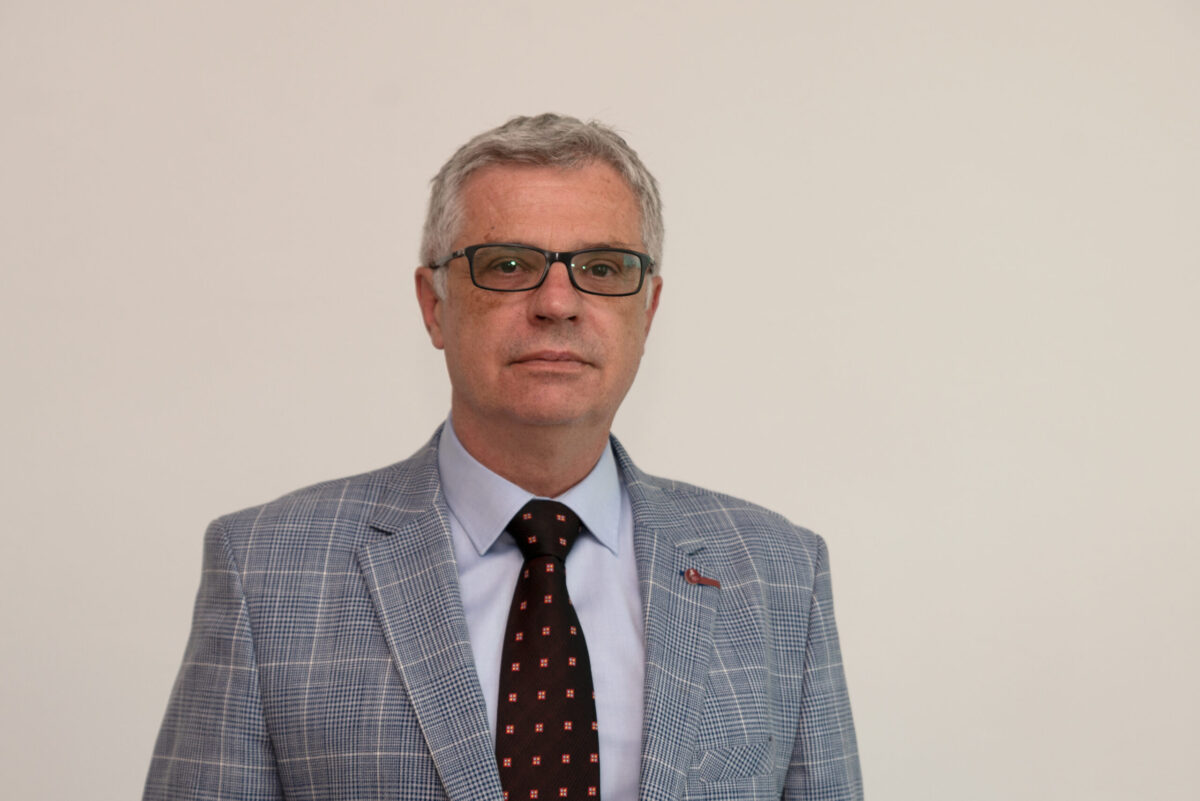We have embarked on the intensive formation of mandatory reserves when crude oil is terribly expensive. Furthermore, we depend on global, geopolitical and climate trends and we have no influence over that.
Retail prices of petroleum products vary daily, hence the Serbian government has been working on resolving this situation, plus, a decision was made to reduce the excise tax on petrol and diesel. We spoke with Tomislav Mićović, Secretary-General of the Association of Oil Companies of Serbia, about market changes, crude oil reserves and new regulations.

As of the 1st of July, oil companies will have to have operational reserves tantamount to quantities required for four days of average production, which means that they must provide both goods and storage space at their own expense. Is there enough space for such storage in Serbia?
This measure doesn’t exist in any modern European economy. Existing storage tanks can take quantities tantamount to four days of average net consumption, calculated over the previous three years. The Operational Reserves Degree envisages that the number of days will increase year on year until we reach 10 days of average consumption in the previous year. Then this will become quite a problem and the largest importers of petroleum products will have to finance the construction of storage space. The only large oil producer, the Petroleum Industry of Serbia (Naftna Industrija Srbije – NIS) has available capacity since the Novi Sad refinery no longer refines oil, so the entire storage space can be used for this purpose. The company also has sufficient storage space throughout Serbia from the time when it was the only distributor on the market and met the needs of the then entire market.
How sustainable is this measure, i.e. is it financially viable, and will it cause additional problems?
We tried to point this out two years ago when the draft decree was on the table and when the Ministry of Mining and Energy decided to activate that provision of the law. Operational reserves have been stipulated in the Energy Law since the law’s 2004 version, which means that since then line ministries could have ordered distributors to form the reserves. In 2019, the Ministry decided to activate this provision. Subsequently, we warned that this provision will have to be reflected in the retail price of fuel because it is an additional cost that no one had had to bear so far. Crude oil and oil derivatives producers and importers will have to engage significant funds for both the goods and storage facilities, simply based on the price of oil derivatives. Since we have been adapting to the EU directives, many things have changed in Serbia and they always require new investments and incur additional costs. Until 2013, we had Diesel D2 and leaded petroleum, the production of which was significantly cheaper than today’s types of fuel that meet current EURO standards.
In Serbian, as in any other market, the taxes on petroleum products should be commensurate with the purchasing power of citizens, as well as the country’s economic power.
In the meantime, the government has introduced an energy efficiency fee and a fee for the formation of required reserves. Mandatory marking and monitoring of fuel quality have also been ordered, a cost paid by manufacturers and importers. These are all relatively small cost increases but every year brings on new expenses. It is worth noting that, on top of these costs, fuel excise went up considerably, compared to all countries in the region and countries at a similar development level. This year, in addition to operational reserves, the authorities will also prescribe that biofuel should be added to regular fuel. Bio-diesel, which should be added to Eurodiesel, is twice as expensive as Eurodiesel, and of course, that will affect the fuel’s retail price. If this happens, the state should reduce its fuel-related tax. This situation is unsustainable thanks to constantly growing fees and other costs imposed by relevant regulations.
In Serbian, as in any other market, the taxes on petroleum products should be commensurate with the purchasing power of citizens, as well as the country’s economic power. The impression is that no one in the government cumulatively monitors the amount of various state-imposed duties, i.e. whether all the costs that accompany the sale of crude oil derivatives on the market are justified and necessary. Ministries of energy and finance, the Interior Ministry’s Emergency Situations Department, public enterprise Roads of Serbia (Putevi Srbije) and local governments all affect the costs associated with trading in petroleum products to a greater or lesser extent, and when we add to this mix the Department of Environmental Protection, someone will either have to make a thorough audit of all costs or we will have extremely high fuel prices in Serbia.

You have stated that, in your opinion, diesel is no longer a fuel intended only for agriculture. How will Serbia, in cooperation with oil companies, solve the problem of the agricultural sector having more fuel than it actually needs?
One of the measures that are extremely counter-productive market-wise is the measure stipulated in the decree on capping the prices of crude oil derivatives, which orders NIS to sell fuel to the agricultural sector at a fixed and unrealistic price of 179 dinars per litre. However, both NIS and the government agreed on this price and the measure is now creating new problems. Smaller fuel retailers are losing their agricultural customers which causes more problems. For most retailers who have one or a handful of petrol stations, farmers are their core customers, and we are talking about between 500 and 600 petrol stations in Serbia.
Now, wholesalers who supplied small petrol stations, which are dominant in agricultural areas, have no one to sell fuel to. This gives birth to another problem and that is that you have no way to check whether the diesel fuel, which is bought in this way, will actually be used in agriculture. As it happens, certain quantities of this fuel are used in transport and small and medium-sized companies. There is no way to control these measures.
Just to be clear, the aforementioned price of fuel for farmers is too high. In most countries, the agricultural sector has the right to buy fuel with significantly lower excise or even no excise at all, so that it can be competitive and produce as affordable food as possible. But in our country, a whole business was born on the back of the right to purchase diesel at a special price. You can buy a larger quantity of fuel than you actually needed for agricultural work and then sell it very cheaply. There is a very big difference between 179 and 203-206 dinars per litre, and if you are resourceful enough, you can make a tidy profit from this. There are certainly cases of misuse, and although beneficial for farmers, this price can cause harm to other segments of the economy. Still, this practice is not widespread, but if the state doesn’t do something quickly, it will spread like wildfire.
Russia had significant surplus quantities of diesel and sold that surplus on the European market. Due to financial sanctions against Russia, many supply chains have been interrupted, and suddenly there is not enough diesel in our region and the whole of Europe. Now, on a European scale, diesel is in high demand and has become more expensive, because it has become a precious commodity. In terms of its price, I don’t think that the oil sector or consumers are going to like what’s ahead of us. Because oil companies will have to engage more funds to provide the same amount of fuel, their costs will rise again, and consumers will need significantly more money to buy fuel. Although, I have to say that the Serbian market is regularly well-supplied.
The stability of energy supply must come first, which I and many people in the industry have been reiterating for years.
Although fuel prices are high in our country given that the global energy crisis is still not subsiding, they are also relatively affordable, thanks in part to the Serbian government giving up on a portion of budget income that comes from charging fuel excise, but also thanks to oil companies because state-capped fuel prices are not adjusted to suit real changes in production costs, import and finally market distribution of motor fuel.
It is important for the stability of supply that the administration is removed from the market as soon as possible so that the market can react to all the changes that are taking place. How can we achieve this?
I would compare Serbian with other national markets. Unfortunately, Serbia is a locked country and we do not have access to the Mediterranean, where crude oil and oil derivatives are traded. So we buy goods on the coastline and have to transport them which causes significant costs. We also have a limited number of sources.
The stability of the energy supply must come first, which I and many people in the industry have been reiterating for years. I am under the impression that the public was not so aware of the importance of the stability of the energy market. Crude oil drives everything. There is no mobility without oil, whether it is the health service, the army, the police, utility companies, or the transport of people, groceries and other goods. Everything comes to a halt without crude oil!
Stability is achieved first by diversifying supply sources. In terms of oil, 30 percent of the diesel consumed in Serbia comes from refineries in the area. They are a kind of cross-border competition to the domestic diesel producer. Market rivalry is important, but so is the existence of logistics supply chains via various energy companies that link our market with several different sources of oil derivatives. We must preserve their business ability, so that they can quickly react at any time and provide their customers, and thus the entire Serbian market, with sufficient oil derivatives. This is stability through diversification. State’s oil and oil derivative reserves are another factor of stability.
They should be used only if major disturbances occur and in those circumstances, they become priceless. Mandatory oil and oil derivative reserves in Serbia are formed following the EU directive, but unfortunately, the funds that were purposefully paid into the budget of the Republic of Serbia were not spent for that. More precisely, only about a quarter of some 500 million euros paid by producers and importers was re-directed to the Directorate for Energy Reserves to be used for the formation of required reserves. This is not good because today, when it is extremely important to have complete reserves, we do not have them. From 2014 to date, we missed out on several opportunities to buy crude oil when it was cheap. Now, we have started forming mandatory reserves when crude oil is very expensive. There is a proverb that says “don’t leave everything until the last minute”.
It is up to us to do everything in our power to reduce the risks of global, geopolitical and climate developments because we certainly cannot influence them.